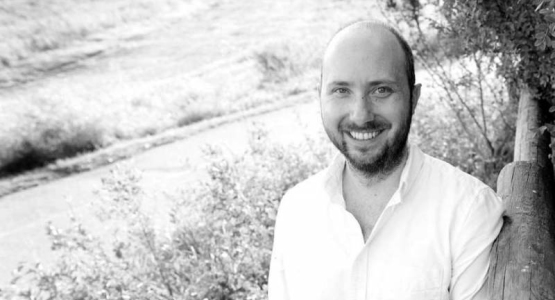Full Disclosure (2): an essay and poem on writing and belonging by Neil Griffin
I was born in Canada to British parents and grew up back-and-forth across the Atlantic, leading to a thoroughly modern condition of feeling most at home in the departure lounge of airport terminals, my worldly belongings condensed into a single suitcase. There was a time when I knew my way around Heathrow and Schiphol better than I knew my way around Calgary, the city in which I was born. To children, the circumstances of their lives rarely seem unusual and I was no different in that respect: to travel, to move, was normal; to stay in one place seemed wrong. The consequence for my adult life has been an uncertain sense of belonging, and a desire to continue moving forward, to always look over the horizon at whatever is coming next.
This may be why I’ve always been most influenced by those writers who move freely through time and space. I love exiles, sojourners and wanderers. To wander, literarily or literally, is to put faith in the people and places that you wander to: to trust, implicitly, strangers and strange circumstances. It’s this sort of trust that I admire in the humour and wit of Bruce Chatwin, the vitality of Jan Morris, and the sheer humanity of Peter Matthiessen. There is often a grace and a sense of understanding found in the work of writers who wander. I love the poetry of Elizabeth Bishop and CP Cavafy, both of whose precise, almost cool use of language belies the expansive empathy of their poems. A writer ought to be inquisitive too, and I’ve been much influenced by the courageous curiosity of Freya Stark, and the calm, penetrating erudition of Claudio Magris.
Not to say that all travel must take place in the real. I am perhaps most influenced by Italo Calvino, whose novels and short stories wander freely from stellar dust at the dawn of the galaxy into strange, imagined futures. The first time I read Invisible Cities, in a beat-up paperback with an art-deco jacket, I almost stopped writing altogether: here was the one book I would want to write and be happy to never spill another word after. I have many copies of it now, one for every home I pass through, and I feel like a peddler when I push it on friends and acquaintances who haven’t encountered it yet.
*
There are many trusty canards offered in the wide and profitable realm of writing advice. I sometimes wonder how often those who proffer advice follow their own teachings. More than once I have thoughtlessly tossed off the suggestion to make a plan and stick to it: set aside a block of time each day and write. It’s an easy, practicable recommendation. I’ve never followed it. I’m only writing this today because I’ve already put it off for two days. I’d rather still be asleep, but the building manager is testing the fire alarms in my apartment building. The point, then, is to take all writing advice with a mountain of salt.
One regular piece of advice to young writers is to read: read often, read always, across genres and forms. No, I say: read less. Above the audible gasps and censuring of public librarians the world over, I’ll admit to being deliberately provocative. Don’t read less of the good stuff – this isn’t an excuse to finally dump that sun-faded copy of Anna Karenina you’ve been carrying around unread for three years. My advice is to think more carefully about what and when you’re reading. We live in a world deluged with words, many of them hastily selected and thrown together. It’s easy to spend a day reading: online articles, news posts, blogs, and at the end of the day remember nothing. My advice to younger writers is to stem that endless tide of content. Be selective, be choosy: accept only the best from what you read.
In 2001, Ray Bradbury gave a keynote address at Point Loma Nazarene University’s Writer’s Symposium by the Sea. It’s on YouTube, and well worth an hour of your time. He suggests in it that young writers read, every day, one well-written essay, one short story, and one poem. That’s a good place to start.
***
|
The Dig Site at Lampedusa They found a hand this morning He sold his catch to us for And we studied it, the hand, from one angle but off at the wrists to show the grain: wrists are the weak point. The place unclaimed. This hand
Neil Griffin |
*
Neil Griffin is an award-winning writer and naturalist. He lives in Western Canada.
